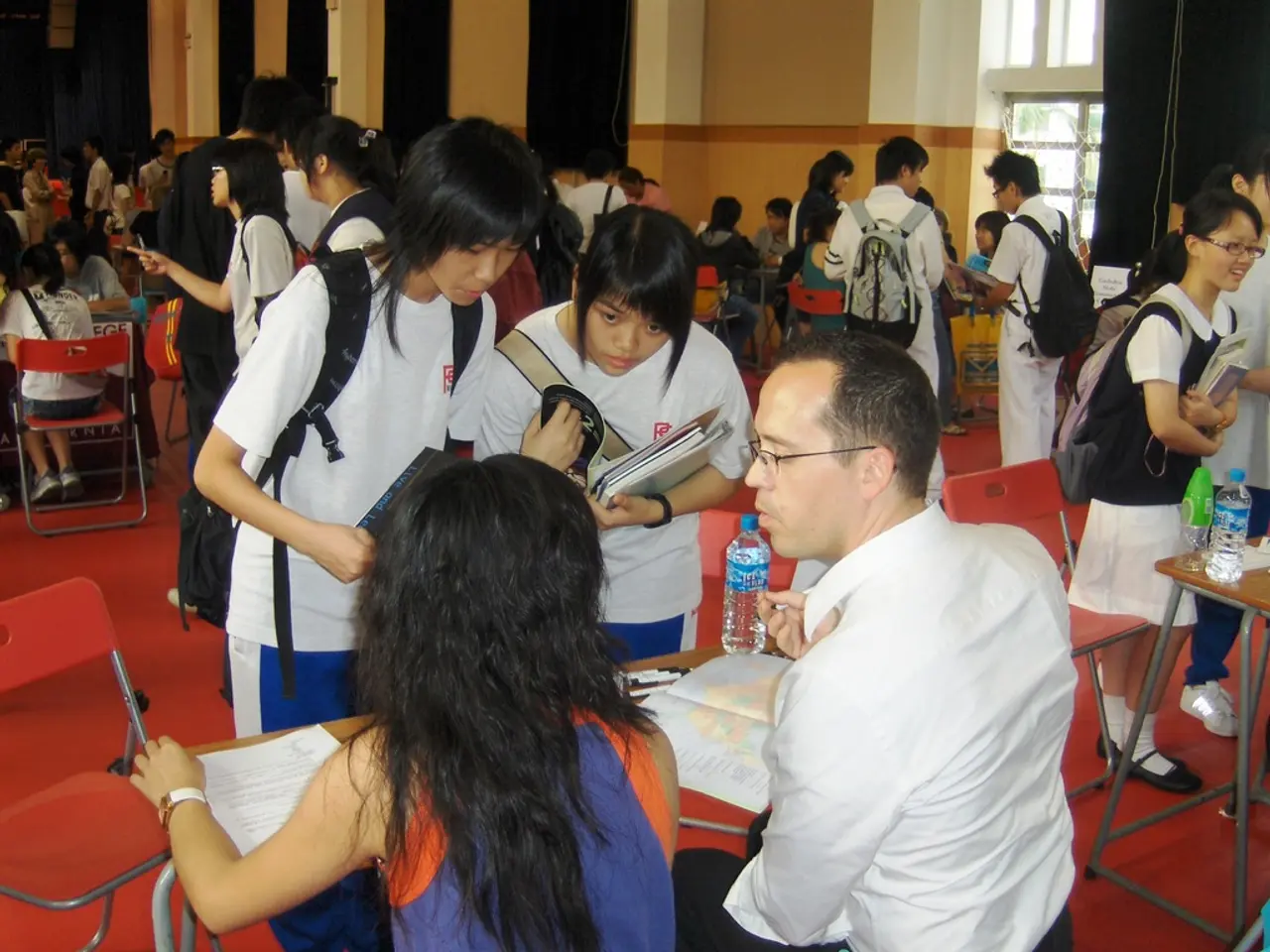Collaborative Academic Growth: Fostering Educational Achievement through Peer Assistance
In the realm of education, peer tutoring has emerged as a potent tool for holistic student development. This collaborative learning strategy, where students help each other in the learning process, offers significant benefits in academic outcomes and social development.
At the heart of peer tutoring lies the idea that students can learn a great deal from teaching one another. Organizational skills are essential for peer tutors, as they must manage their time efficiently to prepare lessons and materials. Effective peer tutors possess strong communication and interpersonal skills, enabling clear conveyance of concepts and fostering an environment that encourages questions.
Academically, peer tutoring helps reduce learning gaps by providing targeted, personalized support that complements classroom learning. This results in improved proficiency and overall performance. For at-risk students, peer tutoring has been shown to significantly improve academic outcomes, promoting equity in education. Collaborative learning in peer tutoring also enhances mental abilities, motivation, and confidence, positively impacting academic success.
In terms of social development, peer tutoring fosters confidence, as students engage actively by sharing ideas and communicating with peers, strengthening their sense of belonging. It promotes critical social skills such as cooperation, teamwork, communication, and empathy. This interaction reduces isolation for some students by encouraging social engagement and building friendships, which in turn enhances emotional support and self-esteem.
Peer tutoring thereby cultivates a positive learning environment with integrated education and global collaboration skills. Learning through peer tutoring is grounded in the idea of peer modeling, where students observe and imitate peers exhibiting desired behaviors or problem-solving strategies, which can enhance learning outcomes.
Peer tutoring initiatives can be integrated into the curriculum, aligning tutoring sessions with classroom topics to reinforce learning objectives. The constructivist approach, emphasizing that learning is an active, contextualized process where individuals construct knowledge based on their experiences, is well-suited to peer tutoring. Reciprocal tutoring, where students take turns assuming the role of tutor and tutee, fosters deeper comprehension and responsibility for their learning.
Cross-age tutoring, where older or more advanced students provide assistance to younger peers, enhances understanding in difficult subjects and nurtures leadership skills. Empathy is crucial for peer tutors, as it allows them to understand and support the individual learning needs of their peers.
Structured tutoring sessions involve predefined roles and specific tasks, ensuring active engagement throughout the learning process. Peer tutors have specific responsibilities that significantly influence the learning process of their peers. Effective peer tutors must assist their tutees in understanding complex subject matter, facilitate concepts through effective explanations, and encourage questions.
In conclusion, peer tutoring acts as a collaborative learning approach that boosts both cognitive and interpersonal outcomes, making it a valuable inclusion in educational frameworks for holistic student development. By fostering academic success while cultivating social skills, peer tutoring offers a promising solution for enhancing the learning experience in today's educational landscape.
Read also:
- Conducting Extensive Investigative Work at the Local Level for Political Elections
- Application solicitations for PhD in Law at DAU School of Law for the academic year 2025-26 are now open
- Must-see eco-friendly exhibitions to check out this summer in London for nature enthusiasts
- Tobacco Sensitivity: Recognizing Signs, Identification, and Avoidance Strategies




